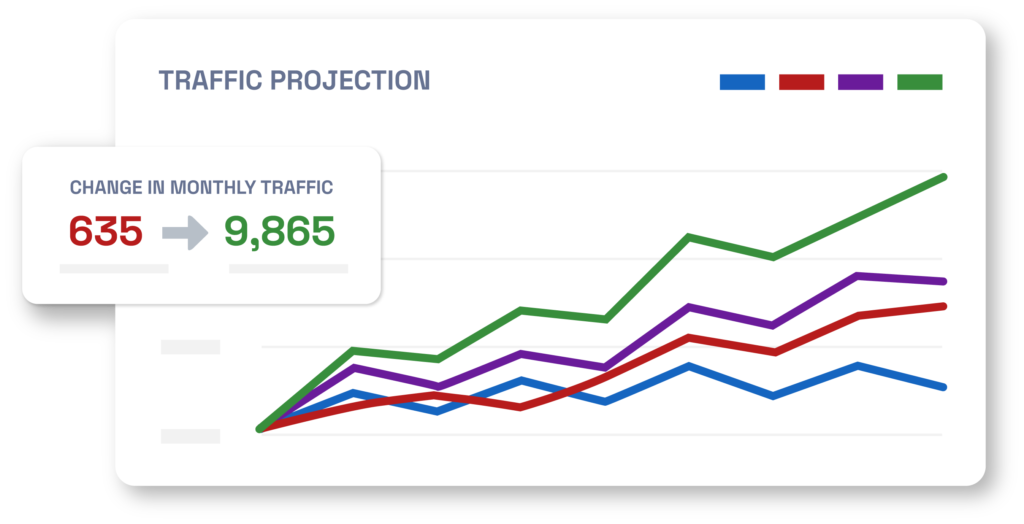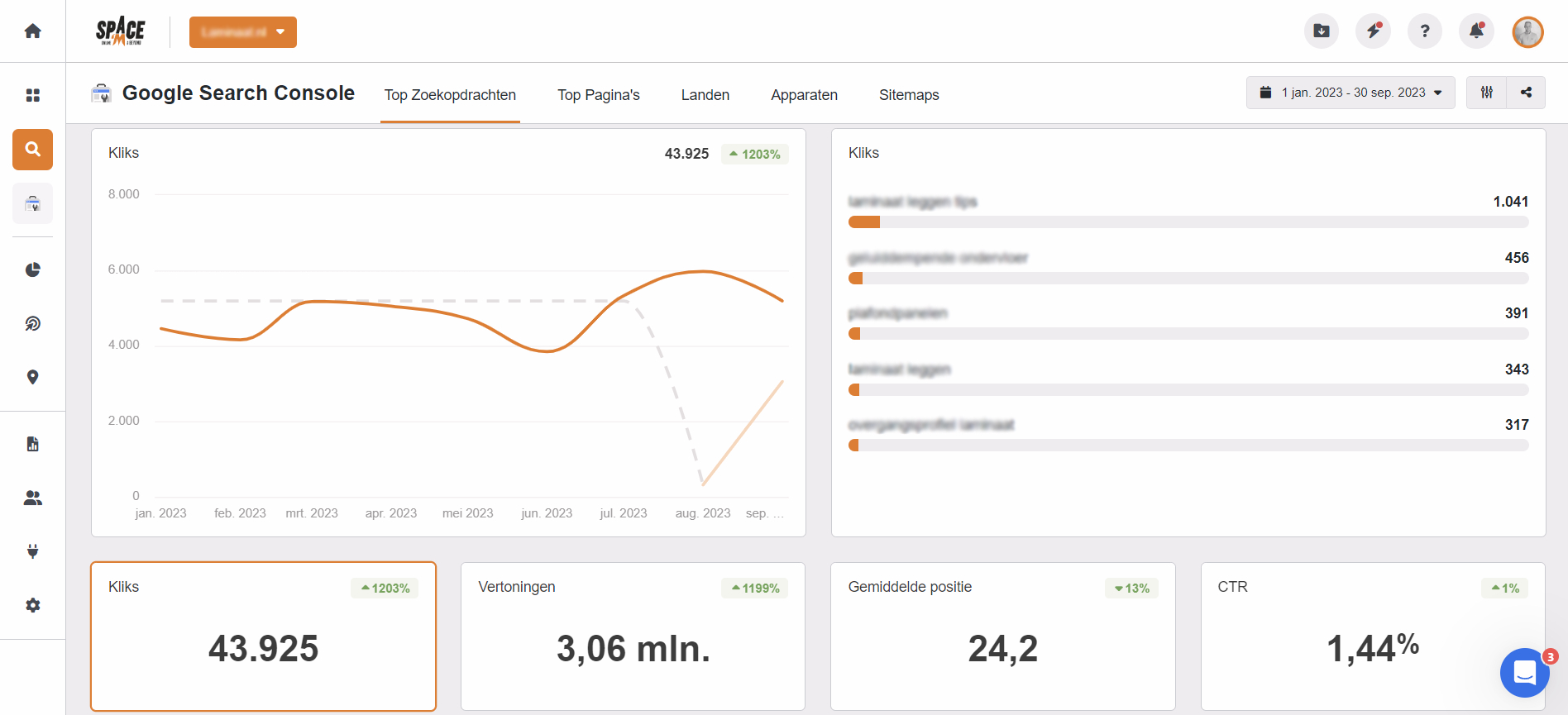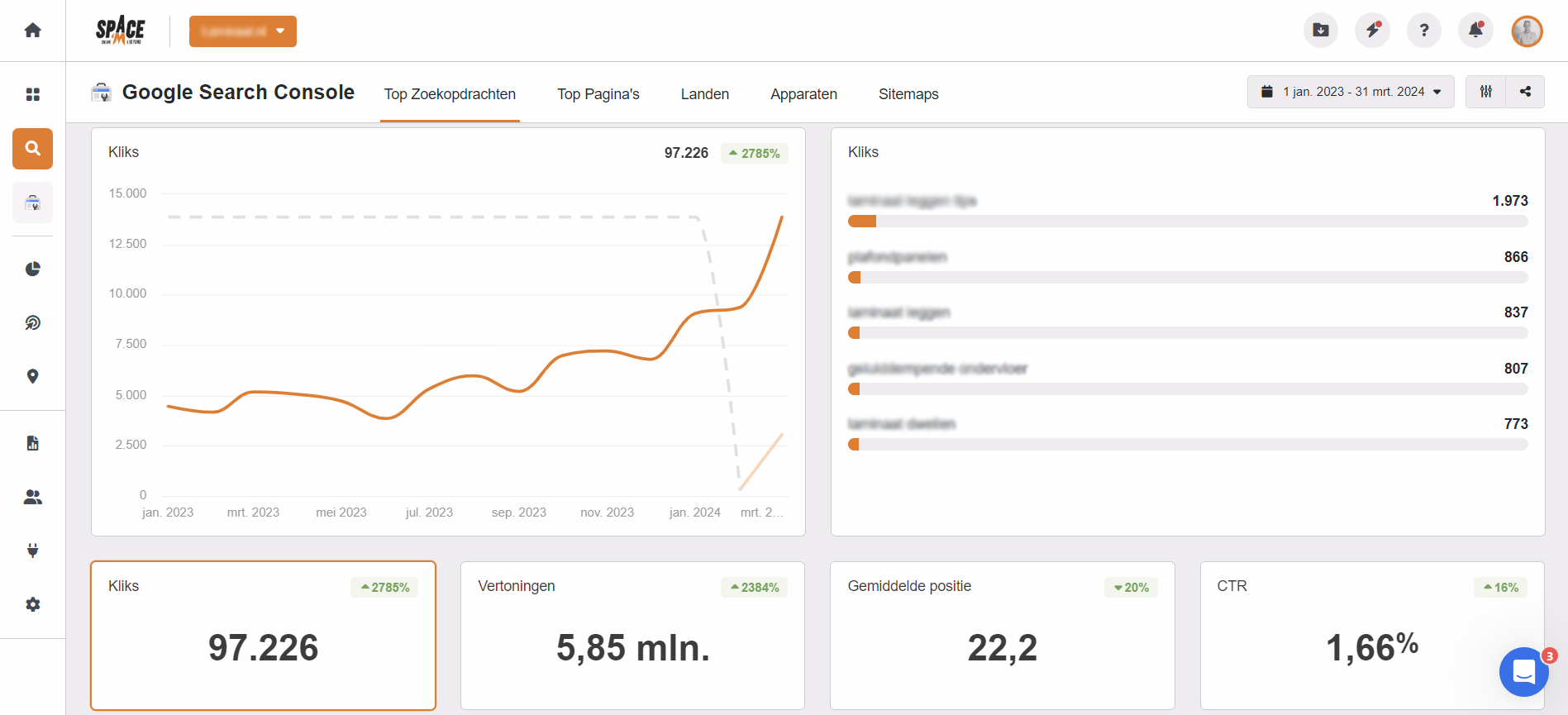SEO for oil and gas companies is essential for increasing online visibility and gaining an edge in the competitive market. This guide will provide actionable strategies, from keyword research to content marketing, tailored specifically for the oil and gas sector.
Key Takeaways
- SEO is crucial for oil and gas companies to enhance online visibility, attract potential customers, and maintain a competitive edge through higher ROI compared to traditional marketing.
- The oil and gas industry faces unique SEO challenges such as creating engaging content for complex topics, addressing global market variations, and adapting to market conditions, necessitating a tailored SEO approach.
- Effective SEO strategies for oil and gas companies include comprehensive keyword research, on-page SEO optimization, building quality backlinks, enhancing user experience, and leveraging local SEO and content marketing to improve search engine rankings and attract targeted traffic.
The Role of SEO in the Oil and Gas Industry
Search Engine Optimization (SEO) is a technique to enhance a website’s standing in search engine rankings via relevant keywords. In the oil and gas sector, SEO is a powerful tool for enhancing online visibility, drawing in potential customers, and sustaining a competitive advantage. With the digital age in full swing, oil and gas companies must leverage SEO to stay ahead of the curve and enhance their brand recognition.
Consider the success stories of major industry players like Shell, BP, and Chevron. Shell experienced a 54% increase in organic traffic and a 70% improvement in search engine rankings after initiating an SEO campaign in 2016. Similarly, BP saw a 32% increase in website traffic and a 60% boost in search engine rankings following their SEO efforts in 2017. These examples underscore the potential of a successful SEO strategy to drive significant results.
SEO goes beyond just improving visibility; it’s an affordable solution with a substantial return on investment. Compared to traditional marketing methods like television advertising, SEO offers a higher ROI and is more cost-effective. By positioning your website above competitors in search results, you can achieve better name recognition and establish your brand as a leader in the industry. A robust SEO strategy is indispensable for oil and gas companies.
Identifying SEO Challenges in the Oil and Gas Sector
The oil and gas sector confronts distinct SEO challenges that demand a custom-made approach. One of the primary difficulties is the complex and highly technical nature of the content. Crafting SEO-friendly material that is both informative and engaging can be a daunting task. The industry deals with intricate topics that need to be communicated clearly and accurately, making content creation a significant challenge.
Another hurdle is the global nature of the oil and gas industry. When operating in different regions, companies need to consider:
- Local search trends
- Language preferences
- Cultural nuances Additionally, they must ensure compliance with various regulations and requirements. This complexity necessitates a bespoke approach to SEO that can cater to diverse markets and audience segments.
Fluctuating market conditions also pose a challenge to SEO in the oil and gas sector. Market volatility can impact search trends, keyword rankings, and overall SEO performance, requiring adaptable and flexible SEO strategies. Keeping abreast with industry trends and modifying tactics in line with these changes is key for retaining a competitive advantage.
Effective SEO Strategies for Oil and Gas Companies
Oil and gas companies need to adopt potent SEO strategies to surmount these challenges. This involves:
- Updating websites
- Using strategic keywords
- Creating high-quality content
- Building quality backlinks
- Implementing industry-specific keywords
- Utilizing local SEO
- Implementing technical SEO
- Implementing content marketing
- Developing a robust backlink strategy
- Tracking performance using analytics tools
A comprehensive SEO strategy should encompass all of these elements.
Each of these elements plays a vital role in boosting search engine rankings and driving organic traffic. The following subsections will delve into the specifics of keyword research, on-page SEO best practices, and building quality backlinks, providing actionable insights tailored for the oil and gas industry.
Keyword Research Techniques for Oil and Gas
Keyword research forms the foundation of a successful SEO strategy. It plays a crucial role in improving search engine visibility and attracting targeted traffic to the website. For oil and gas companies, identifying industry-specific keywords is crucial as they help target content and optimize websites to appear in relevant search engine results pages (SERPs). By conducting keyword research, you ensure that your website content aligns with user intent, increasing the chances of higher rankings.
Tools like Keyword Tool, KeywordsFX, and SEMrush can be instrumental in discovering the keywords people use when looking for oil and gas-related products and services. By leveraging these tools, companies can create site pages and content that resonate with their target audience, driving more organic traffic and improving search engine visibility.
On-Page SEO Best Practices for Oil and Gas Websites
On-page SEO involves refining individual web pages to enhance search engine standings and draw organic traffic. This is done through techniques such as keyword optimization and content enhancement. In the oil and gas industry, it’s crucial to strike a balance between technical accuracy and readability. The key to engaging both industry professionals and potential customers is to provide valuable, informative content that is easy to understand. This helps in building trust and credibility in your industry.
Clear and concise URLs help search engines and users understand a page’s content, leading to better rankings. When incorporating keywords, it’s essential not to compromise the quality or readability of the information. Optimized URLs and high-quality content can significantly enhance your website’s authority and search engine performance.
Building Quality Backlinks for Oil and Gas Companies
Establishing quality backlinks is a paramount component of a triumphant SEO strategy. Acquiring high-quality links from reputable sites signals to search engines that your website is trustworthy, which can significantly enhance your SEO efforts. A robust backlink profile serves as an endorsement for your oil and gas company’s website, boosting its authority and search engine rankings.
Off-page optimization, particularly through building high-quality backlinks, is essential for improving search engine rankings. By creating a network of quality links from relevant, reputable websites, oil and gas companies can enhance their online presence and attract more potential clients.
Enhancing User Experience for Better SEO Performance
User experience (UX) plays a significant role in determining SEO performance. Approximately 60% of organic search engine visits in the U.S. occur on mobile devices, making mobile optimization crucial for search visibility. Neglecting mobile optimization can significantly reduce search engine rankings and user engagement. Mobile-friendly websites refactor their layout for mobile devices, enhancing ease of navigation and readability.
Improving website speed is another vital aspect of enhancing UX. Faster-loading sites have several benefits:
- They reduce bounce rates
- They increase user engagement
- Page speed optimization is essential for a robust SEO strategy because it impacts both user experience and search engine rankings
- Ensuring your website meets mobile standards can prevent high bounce rates and retain visitors.
Ease of navigation and readability are also crucial for a positive user experience. A well-structured website with intuitive navigation ensures that visitors can find the information they need quickly and easily. This not only keeps users engaged but also signals to search engines that your website is of high quality, ultimately leading to better rankings.
Leveraging Content Marketing in the Oil and Gas Industry
Content marketing enables oil and gas companies to:
- Position themselves as industry thought leaders
- Create and share valuable, informative, and engaging content
- Connect with their audience on a deeper level
- Use storytelling techniques to highlight innovation, sustainability efforts, and community impact
Successful content marketing campaigns in the oil and gas industry include Chevron’s ‘Energy Stories,’ which focused on the real people behind operations, and Shell’s ‘Make the Future,’ which highlighted innovative energy projects and sustainability efforts. These campaigns not only humanize the brand but also build trust and credibility with the audience.
Investing in content marketing can significantly improve customer retention rates, sometimes exceeding 75%. Sharing stories about engineers, scientists, and professionals behind projects helps humanize the brand and build trust. Responding to comments and messages on social media promptly can further enhance customer engagement and loyalty.
Measuring SEO Success in the Oil and Gas Sector
Evaluating SEO success is vital to ascertain the effectiveness of your strategies and their alignment with desired outcomes. SEO requires consistent monitoring, adjustment, and improvement, as it is not a one-time effort but an ongoing process. It needs continuous attention for achieving the desired results. Performance tracking allows for results analysis and strategy adjustments, ensuring continued success.
Key performance indicators (KPIs) for measuring SEO success in the oil and gas industry include organic search traffic, keyword rankings, conversion rates, bounce rates, time on page, and backlink profile. Organic search traffic is a critical KPI for determining the effectiveness of SEO in attracting visitors through non-paid search results. Keyword rankings help measure the visibility and search engine performance of targeted keywords.
Some important metrics to track on your website are:
- Conversion rates: gauge the success of transforming site visitors into leads or customers
- Bounce rates: indicate the percentage of visitors who leave the site after viewing only one page
- Time on page: measures how long visitors stay on a given page, providing insights into content quality and user engagement
Not leveraging analytics tools can prevent understanding the effectiveness of SEO efforts and necessary adjustments.
Local SEO Strategies for Oil and Gas Companies
Local SEO is indispensable for oil and gas companies aiming to target potential customers in specific geographical zones. By optimizing for local keywords and phrases, companies can position themselves as go-to providers in the regions they serve, enhancing trust and credibility. Local SEO helps businesses become more visible in areas where it matters most.
Optimizing for local keywords involves several tactics, including:
- Ensuring NAP (Name, Address, Phone Number) consistency
- Presence in local directories and maps
- Acquiring backlinks from other local businesses and directories
Mobile optimization also benefits local SEO by attracting more local customers who search for businesses on the go.
Visibility in local search results makes oil and gas companies more likely to be trusted by potential clients. Building local citations and acquiring backlinks from other local businesses can significantly enhance local SEO efforts.
Utilizing Social Media for SEO in the Oil and Gas Industry
Social media platforms contribute significantly to SEO for oil and gas companies, by channeling traffic to websites and enhancing brand recognition. Posting engaging and industry-relevant content on social media can drive traffic to oil and gas company websites. Utilizing visual content like images and videos can increase user interaction on social media platforms.
Social media can also be used to build brand awareness, which indirectly supports SEO efforts. By leveraging social media effectively, oil and gas companies can enhance their solid online presence and improve their search engine rankings.
Common Mistakes to Avoid in Oil and Gas SEO
A frequent error in SEO for oil and gas companies is keyword stuffing, the excessive repetition of the same keywords with an intent to manipulate search rankings. Using black hat SEO tactics like keyword stuffing or buying backlinks can lead to severe penalties from search engines. Creating high-quality, relevant content that naturally incorporates keywords is crucial to avoid these penalties.
Some common SEO mistakes to avoid are:
- Overlooking the importance of technical SEO, such as site speed and structure, which can impede search engine crawlers.
- Focusing solely on high-volume keywords and overlooking niche-specific terms that may have higher conversion rates
- Failing to update content regularly, leading to decreased relevance and search engine visibility
In what other industries does Space’M Online SEO?
Space’M Online extends its SEO expertise across a diverse range of industries beyond finance, legal, insurance, and e-commerce. Our team is adept at crafting tailored SEO strategies for sectors such as healthcare, education, real estate, and technology.
By understanding the unique challenges and opportunities within each industry, we help businesses enhance their online presence, drive targeted traffic, and achieve sustainable growth. Whether you’re a local business or an international enterprise.
Space’M Online is committed to delivering results that align with your specific industry needs and goals, take a look at the following industry page to get more information:
Frequently asked questions
We recognize that you might have inquiries about our SEO services for oil and gas companies and our modus operandi. Here are some frequently asked questions to help clarify our approach and the benefits of partnering with Space’M Online:
Why is SEO important for oil and gas companies?
SEO is important for oil and gas companies because it increases online visibility, attracts potential customers, and helps maintain a competitive edge in the industry. It also provides a higher return on investment compared to traditional marketing methods.
What are the main SEO challenges in the oil and gas sector?
The main SEO challenges in the oil and gas sector are the complex and technical nature of the content, navigating global markets, and adapting to fluctuating market conditions. Tailored and adaptable SEO approach is needed to address these challenges.
How can oil and gas companies conduct effective keyword research?
Oil and gas companies can conduct effective keyword research by using industry-specific tools like Keyword Tool, KeywordsFX, and SEMrush to discover relevant keywords and aligning website content with user intent and industry-specific terms to improve search engine rankings.
What are some best practices for on-page SEO in the oil and gas industry?
Some best practices for on-page SEO in the oil and gas industry include refining individual web pages for technical accuracy and readability, optimizing URLs, and ensuring high-quality content to improve search engine rankings and user engagement.
How can social media enhance SEO efforts for oil and gas companies?
By driving traffic, building brand awareness, and posting engaging content, social media can indirectly support SEO efforts for oil and gas companies. Connecting with the audience and utilizing visual content are effective strategies for increasing online visibility.




















